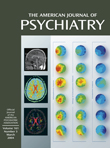Preliminary Randomized, Double-Blind, Placebo-Controlled Trial of Pramipexole Added to Mood Stabilizers for Treatment-Resistant Bipolar Depression
Abstract
OBJECTIVE: Previous studies suggest that the dopamine agonist pramipexole may possess antidepressant properties. The authors conducted a preliminary randomized, placebo-controlled trial to determine the safety and antidepressant efficacy of pramipexole in treatment-resistant bipolar depression. METHOD: Twenty-two depressed outpatients with DSM-IV nonpsychotic bipolar disorder were randomly assigned to receive placebo or flexibly dosed pramipexole (mean maximum dose=1.7 mg/day, SD=1.3) added to existing mood stabilizers for 6 weeks. The primary outcome measure was response, defined as improvement in Hamilton Depression Rating Scale score of 50% or more over the baseline score; secondary analyses involved changes in Clinical Global Impression (CGI) severity scores. RESULTS: More patients given pramipexole (10 [83%] of 12) than patients given placebo (six [60%] of 10) completed the study. Eight (67%) of 12 patients taking pramipexole and two (20%) of 10 taking placebo had an improvement of at least 50% in their Hamilton depression scale scores. The mean percentage of improvement from baseline Hamilton depression scale scores was greater for patients taking pramipexole (48%) than for those taking placebo (21%). Mean improvements in CGI severity were also greater with pramipexole than placebo. No patients discontinued the study because of adverse events except for one patient who became hypomanic while taking pramipexole. CONCLUSIONS: Pramipexole was a safe and effective antidepressant among patients with bipolar depression. Larger randomized, controlled trials are needed to affirm these initial observations.



